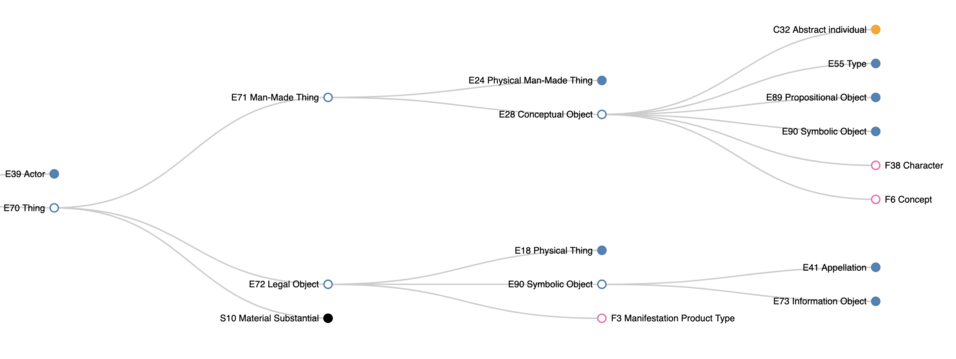Lately it seems like machine learning is taking over the humanities (as well as many other domains)! In the RELEVEN project we are leaning quite heavily on what you might think of as "old fashioned" concepts from artificial intelligence: classification of information using ontologies based on the CIDOC-CRM, and analysis and inference based on the sort of logical reasoning that ontologies enable.
Already a year ago I started to hear the question, "don't you think that LLMs and generative AI will render your work obsolete?" This isn't such a surprising question - it seems we learn a new capability of these systems every day, from identifying similarites in images, to pulling structured data out of unstructured text, all the way to providing TEI markup on scholarly texts automatically. Insofar as these systems can do something that looks very much like reasoning without any ontology at all, it is only natural to wonder why we need even bother with the CIDOC-CRM, much less the painstaking manual work of recasting the sorts of complex and hesitantly qualified statements we find in the sources and in secondary scholarship into clear structures of who is claiming what exactly.
A couple of weeks ago, in the process of checking and documenting the (still developing) data model, I found myself working through exactly one of these exercises. In most of my presentations concerning RELEVEN, I use an example of a contested date of death for Hervé Frankopoulos, a Frankish mercenary operating in the Byzantine empire in the middle of the 11th century, which was around 1063 according to Matthew of Edessa (a 12th-century source) and after August 1071 according to the analysis of Werner Seibt in 2010, based on a surviving lead seal. Related to this, Matthew writes that Frankopoulos was specifically put to death for having caused the death of one Dawatanos (Դաւատանոս), the doux of Edessa. So I thought, well, it should be straightforward enough to add the information about Dawatanos' death.
But this in turn brought up all sorts of questions - first, is there already a record for him somewhere? Is he the same as Leo Diabatenos (Διαβατηνός; Leon 103 in PBW), as Wikipedia seems to suggest by claiming that he is mentioned in two Byzantine sources as well as Matthew's Chronicle? The dates of their careers certainly don't seem to match up, so is this a mistake on the part of a Wikipedia editor or is it claimed by a current scholar who has worked on this material, such as Dédéyan or Seibt? So it took me a good couple of hours to do all the checking necessary to be able to add the assertions concerning this seemingly simple matter of the date and place of Dawatanos' death. It is easy to see why maybe we shouldn't be bothering, if we can train a transformer or some other deep learning model to do all this legwork for us instead. It is in fact very tempting to try! (I think I might finally have an idea for that Proof of Concept grant...)
I have a suspicion, though, that ontologies and logical reasoning won't cease to matter. Especially for topics like ours where data is so sparse, the principles of open-world reasoning that underpin ontological models, where we have a system for drawing conclusions even in the absence of data and revising those conclusions if and when more data becomes available, are going to remain important. Moreover, these are exactly the principles that are (so far) difficult to impossible to implement in deep learning methods. The entire function of these models involve, so to speak, using past performance to predict future results - that is, they only know what they have learned and we don't want a model that either excludes the unknown or tries to fill it in. So I think there remains plenty of room for the 'old' AI methods alongside the 'new', and this combination might be exactly what finally makes Digital Humanities more broadly useful for our weird corners of Medieval Studies.


